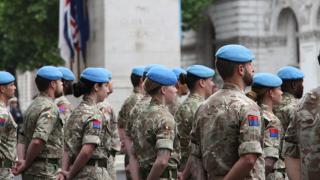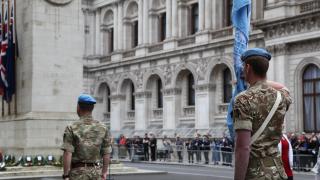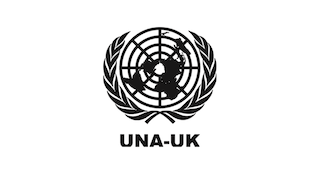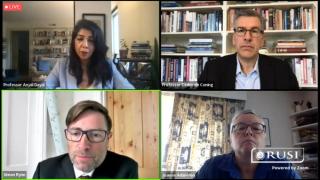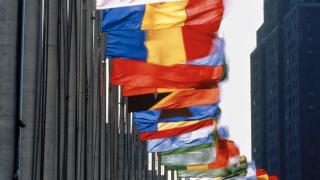
UNA-UK has long campaigned for greater transparency and accountability in relation to sexual exploitation and abuse (SEA) committed by UN peacekeepers.
In addition to suffering caused to individuals and communities that have already experienced the trauma of conflict, these allegations of sexual misconduct sap the legitimacy and credibility of UN peacekeeping, which are vital to the UN's ability to perform its life-saving tasks. While the Organisation has already done some commendable work to prevent and respond to SEA, we believe that unless sexual violence is addressed by those states that contribute troops and funding to UN peacekeeping - and which ultimately hold the power to initiate criminal proceedings - a sense of impunity is going to hamper UN efforts. Our Mission Justice campaign seeks to further this notion, and to encourage states to do more to prevent SEA and to pursue criminal accountability when possible.
We therefore support the efforts of the Department for International Development to take steps to prevent SEA through safeguarding, and yesterday's statement in Parliament by Penny Mordaunt, the Secretary of State, who said:
The UK is not waiting for others to act. We are taking a lead on this.
However, we are concerned by her comments in relation to UK funding for the UN (below), and how these are being portrayed in the media:
The message from us to all parts of the UN is clear: they can either get their house in order, or they can prepare to carry out their good work without our money.
These comments have been interpreted as signalling possible withdrawal of the UK's core contribution to the UN.
The UK provides different kinds of funding to the UN. Some of this funding is of the form of the UK's assessed contributions to the UN's general and peacekeeping budgets. Known informally as 'dues', these are payments that all 193 UN member states are required to make. The proportion is loosely based on countries' ability to pay, and budgets are negotiated by all UN member states. In addition, the UK provides voluntary funding to particular UN programmes and agencies that contribute to its international priorities.
The UK's dues provide a percentage - currently 4.5% - of basic funding for the UN's work to further international peace and security, human rights and sustainable development. It also provides 5.8% of funding to support peacekeeping missions, over which the UK - as a permanent member of the UN Security Council - has significant influence. The suggestion that the UK might withold its dues, at a time when the US has threatened to do so, is worrying. It risks undermining the UN - a vital global mechanism for providing common solutions to common problems, and it raises questions about the UK's commitment to multilateralism, which runs counter to the vision of a 'Global Britain', exemplified by the country's generous committment to international development.
On the other hand, making the UK's voluntary funding to the UN conditional on reform is entirely within the government's rights, and could serve as a mechanism to stimulate change. Indeed voluntary funding in all sectors should, almost by definition, be conditional on acceptable performance. Care should be taken when communicating this approach to ensure that conditionality of voluntary contributions is not conflated with the UK defaulting on its obligations.
As we noted in our statement on the Oxfam crisis, sexual exploitation and abuse is prevalent in all sectors and defies easy answers. In the long term, only a world of more equitable relations will provide the opportunity for a world free of sexual exploitation and abuse. The work of the UN - and charities like Oxfam - remains vital to making progress towards such a world.

